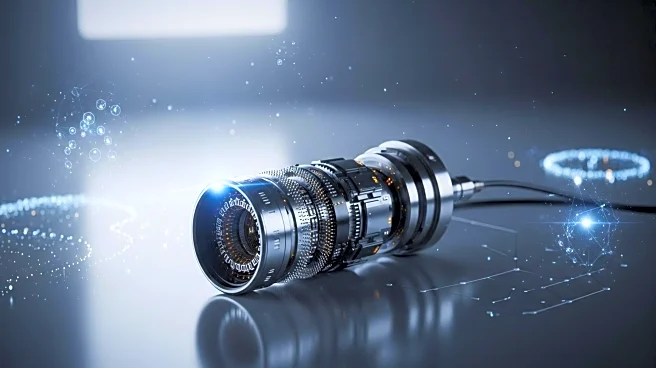What's Happening?
Physicists in Australia have discovered a method to measure both the momentum and position of a particle simultaneously without violating Heisenberg's uncertainty principle. The team, led by Christophe Valahu at the University of Sydney, utilized modular observables to shift the uncertainty, allowing for precise measurements of relative shifts rather than absolute values. This approach involves measuring modular momentum and modular position, which focus on small shifts within a fixed scale. The researchers demonstrated this technique using a single trapped ion in a grid state, where the ion's wave function is spread out into evenly spaced peaks. By observing shifts in these peaks, they could measure changes in position and momentum concurrently. This breakthrough has significant implications for quantum sensing, potentially improving navigation tools and enhancing the precision of clocks.
Why It's Important?
The ability to measure both position and momentum with high precision could revolutionize quantum sensing technologies. Quantum sensors are crucial for detecting minuscule shifts caused by faint forces or fields, which traditional instruments often miss. This advancement could lead to more reliable navigation systems, especially in environments where GPS is ineffective, such as underwater or in space. Additionally, it could improve biological and medical imaging, offering more detailed insights into complex systems. The scalability of this method using a single atom in a trap suggests potential for widespread application in various scientific and technological fields, enhancing the accuracy and reliability of measurements across disciplines.
What's Next?
The next steps involve exploring the scalability of this technique and its application in real-world scenarios. Researchers may focus on integrating these quantum sensors into existing technologies to enhance their precision and reliability. Potential collaborations with industries reliant on navigation and imaging technologies could accelerate the adoption of these advanced sensors. Further research may also investigate the use of modular observables in other quantum systems, potentially leading to new discoveries in quantum mechanics and its applications.
Beyond the Headlines
This development highlights the ongoing evolution of quantum mechanics and its practical applications. The ethical and legal implications of enhanced sensing technologies could be significant, particularly in areas such as surveillance and privacy. As quantum sensors become more precise, discussions around their use and regulation may intensify, necessitating a balance between technological advancement and ethical considerations.









